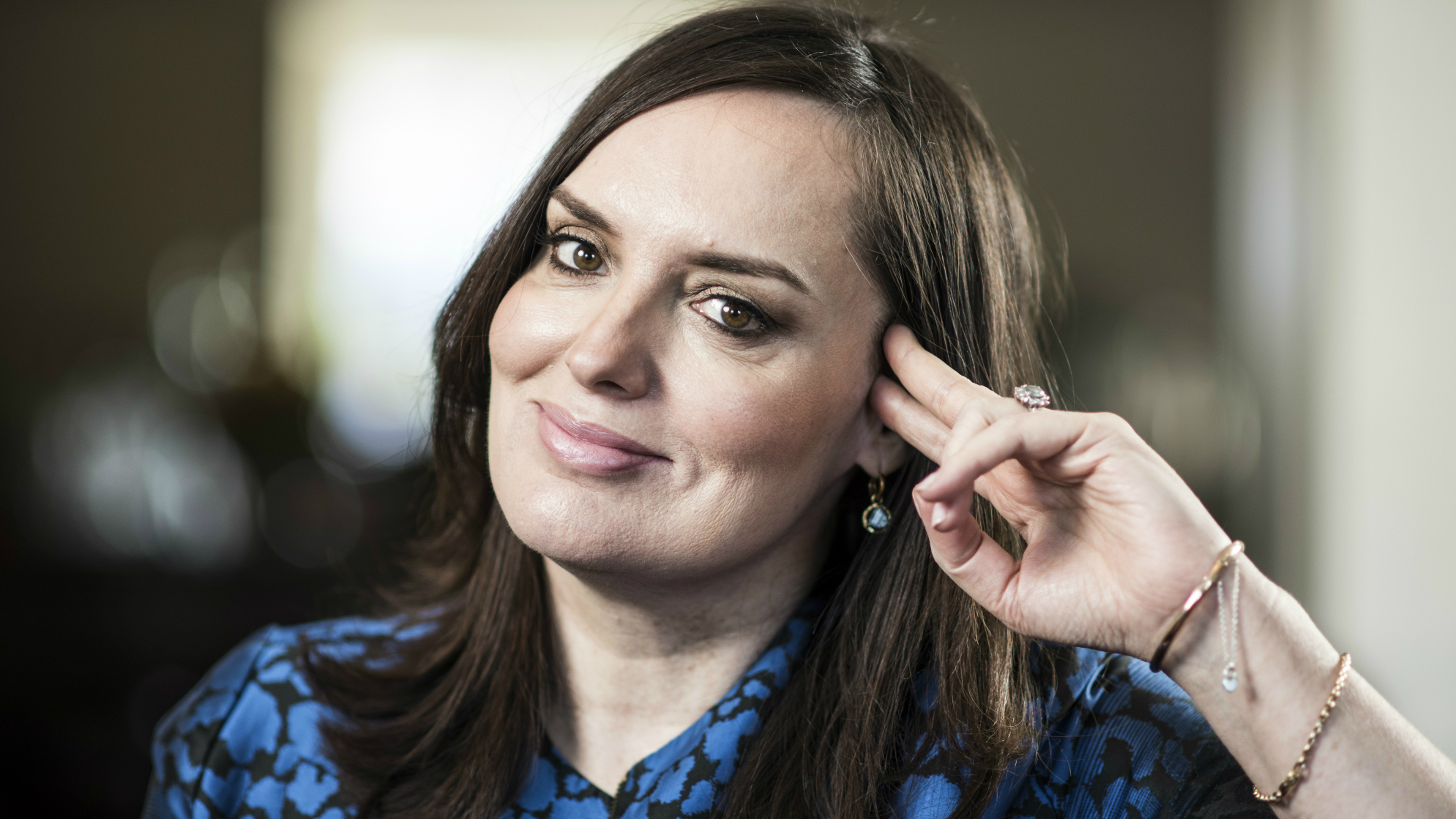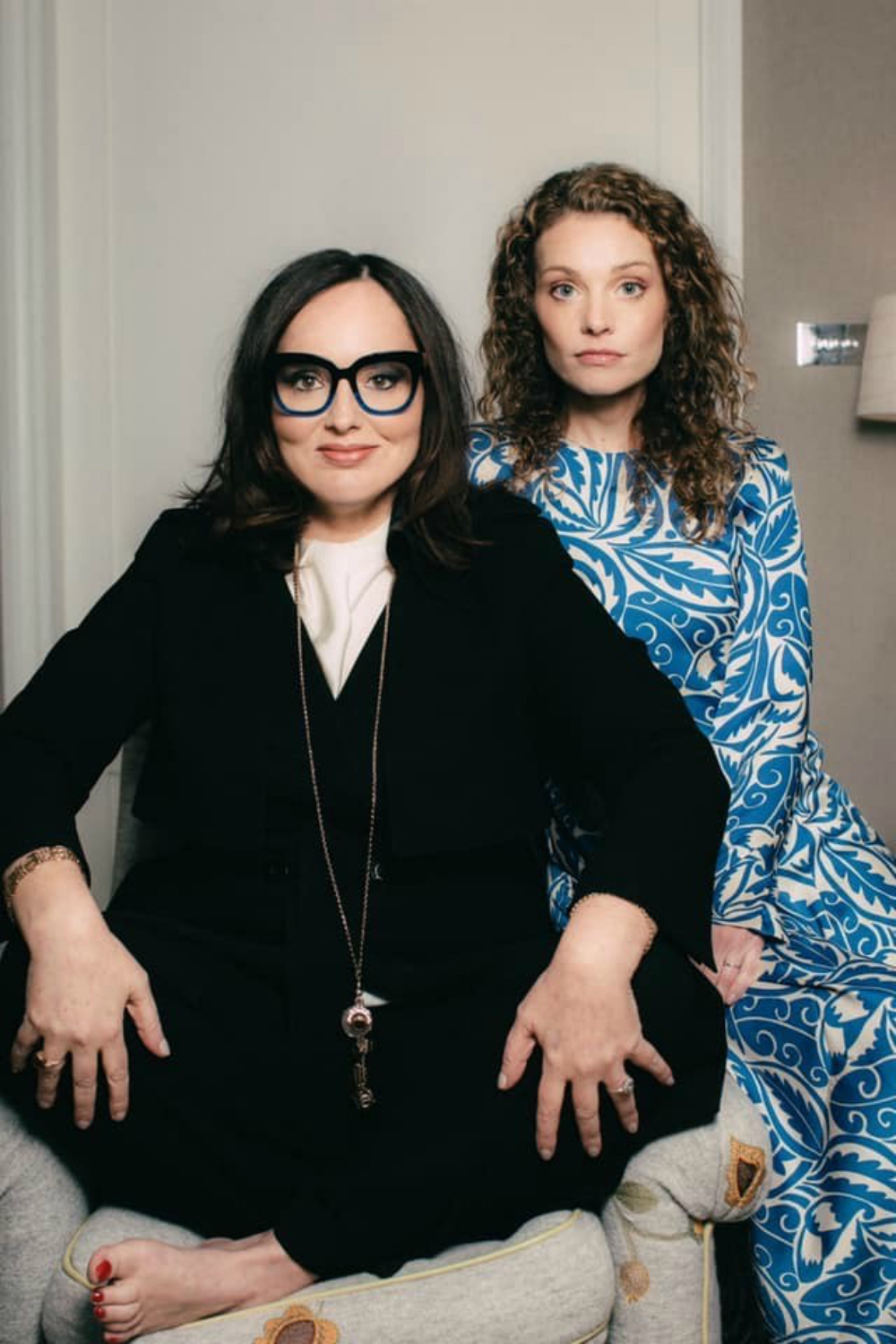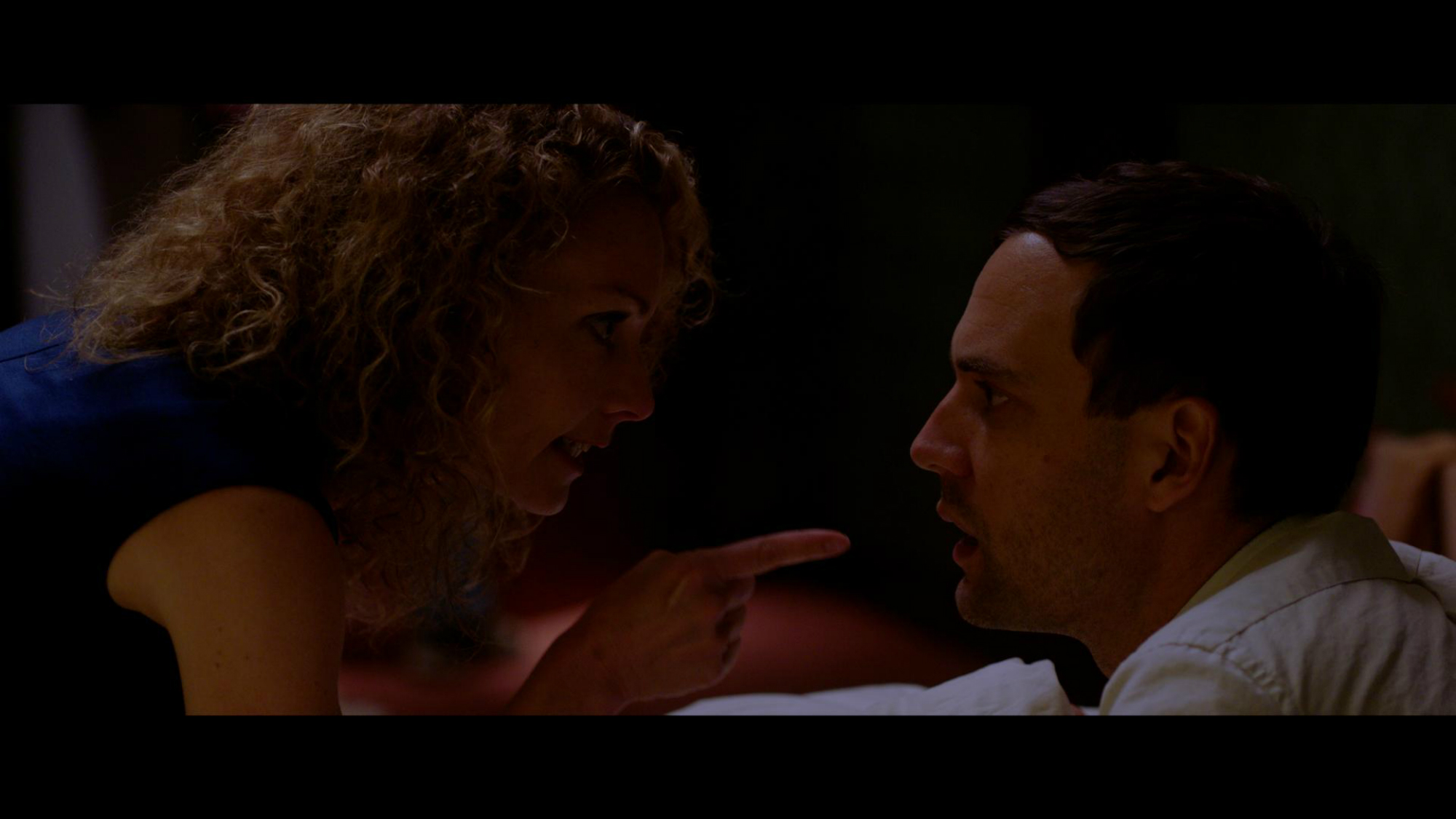Deborah Frances-White on what she’s learned about men from hosting The Guilty Feminist
With her brilliant award-winning podcast notching up 75 million downloads, the comedian tells us what feminism needs to work effectively, and why her first film will definitely not be her last

Celebrity news, beauty, fashion advice, and fascinating features, delivered straight to your inbox!
You are now subscribed
Your newsletter sign-up was successful
With her brilliant award-winning podcast notching up 75 million downloads, the comedian tells us what feminism needs to work effectively, and why her first film will definitely not be her last
Interview by Suchandrika Chakrabarti
'I’ve been hosting The Guilty Feminist live shows and podcast since December 2015, asking guests about the contradictions we all deal with when trying to be good feminists. I ask them to begin a sentence with “I’m a feminist but…” One of my most embarrassing is: “I secretly love the very problematic romcom Pretty Woman,” because, well, Richard Gere…
The Guilty Feminist is an unapologetic space for women and non-binary people, and I’m so proud of getting over 70 million downloads. We hear more diverse voices in podcasting because the barriers to entry to broadcast have been removed, and anyone can take control of the means of audio production. I started the podcast because I realised I was living in a patriarchy, and I wanted to take up more space in it. Then I figured out that I'm part of the patriarchy, because I'm a middle-class white woman who went to Oxford.
It's hard to see it when the privilege is your own, and it's hard to do anything about it if it's going to cost you personally. I didn’t start the podcast to learn about men, but that’s happened along the way. For feminism to work, it does have to involve men. Probably 20-30% of the audience is male, and for the men who come along to the shows, it’s often the first time they’ve been in the minority. I think they want to understand what feminism is now, and what place they might have in it. For some of them, the #MeToo movement has opened their eyes to how women live.

In one episode of the podcast, ‘Taking Control of the Narrative’, from October 2018, we were discussing some men’s fears about how to approach women in this new climate, and I grew to understand that there are men out there who have no idea how they come across to women. They hadn’t developed that kind of empathy, because there hadn’t been any consequences to their actions, before. #MeToo and the ongoing conversation is slowly changing that.
Having written a film, Say My Name which premiered in July 2019, it’s been fascinating for me to see how the movie industry works from the inside. While it didn’t take me that long to write the script, a decade went by before it was released as a film. I first sent the script to my friend and the eventual director, Jay Stern, in 2009. I was thrilled when the film won Best Welsh feature at the Cardiff International Film Festival 2018, then Best Actress (Lisa Brenner), Best Actor (Nick Blood) and Best Feature Film at the London Independent Film Awards 2018.
Celebrity news, beauty, fashion advice, and fascinating features, delivered straight to your inbox!

There is a subplot that is based on my own experience; I’m truthful to that experience, but not replicating it in the movie. I took what I knew and gave myself the challenge of making it into the third thing in the film, the thing that the audiences wouldn’t see coming. It answers the mystery and fulfills the promise - but I don’t want to give too much away.
What I love about having written a film that’s a screwball comedy with a female lead is that it shows how women get out of trouble. Female characters in films used to be often perceived as to be a needing male protection. Then that became unfashionable 5-10 years ago, and instead, they began kicking their way out of trouble.
I’ve just never recognised that character. I don't know many women with the upper body strength to punch their way out of trouble. What that film character shows is that women are as good as men - true - and therefore we can use the same strategy in situations of confrontation - not true. Women are amazing at talking our way out of trouble. We're talented at negotiating our exits from danger.

My female friends and I have all the same stories: the taxi driver became aggressive, we felt we were in danger. So what we did is we neutralised the anger just long enough to get ourselves out of the vehicle. We don't pick fights, we can't physically win. We don’t escalate. Instead, we play nice and neutralise until we can get to a place of safety. That’s the recognisable lived experience I wanted to bring to the screenplay.
This happens many times in the film when Mary (the lead character, played by Lisa Brenner) is threatened with physical violence. She uses bonding strategies. She's creative. She even prays to get out of trouble, as a diversion. This is how women deal with confrontation. Yes, we all have these stories and they're depressing, but it's not a sad film. There's a lot of humour made out of these ridiculous situations that Mary finds herself in, because we know she has the skills to save herself, and her love interest (played by Nick Blood).
I’d love to make another film, but this year, I’m on tour with The Guilty Feminist, and I’m currently in Australia. Then it’s New Zealand and the UK. My guests include former Australian Prime Minister Julia Gillard, and comedians like Jess Fostekew, Desiree Burch and Sindhu Vee.'
SAY MY NAME is available On Demand from 10thFebruary 2020
The leading destination for fashion, beauty, shopping and finger-on-the-pulse views on the latest issues. Marie Claire's travel content helps you delight in discovering new destinations around the globe, offering a unique – and sometimes unchartered – travel experience. From new hotel openings to the destinations tipped to take over our travel calendars, this iconic name has it covered.